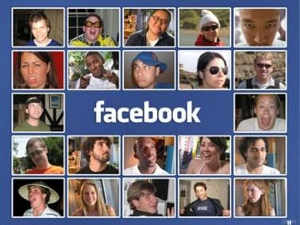Survey Says College Students Mostly Use Tinder To Find Friends
- Thursday, April 14 2016 @ 09:18 am
- Contributed by: ElyseRomano
- Views: 3,014
Believe the media hype about Tinder and you know it as the epicenter of youth hookup culture. The app is constantly plagued by accusations of promoting casual sex, but a recent survey from college jobs startup WayUp says the perception of Tinder could be a far cry from its reality.
The survey asked 200 college students about their dating habits. Seventy-three percent ranked Tinder as their favorite dating app, followed by Bumble at 13% and OkCupid at 10%. A lone student listed Facebook as her dating site of choice.
It’s not a surprise that college students show a strong preference for Tinder. They were amongst Tinder’s most active users when the app launched in 2012, and today Tinder says 50% of its users are in the college age group.
What’s more surprising is what they say they’re using it for. Twenty percent said they're looking for a hookup, 27% said they’re looking for a significant other, and the majority - at 53% - said they use dating apps to find friends.
So is that Tinder’s deep, dark secret? It’s not the sex-fueled free-for-all everyone thinks it is?
Both college students and researchers believe the survey isn’t an accurate reflection of the dating landscape. Sydney Mastandrea, a sophomore at University of Miami, told CNN Money, "I think people use [Tinder] for random hookups rather than [finding] friends — but say it's for 'friends' so they aren't judged."
Aditi Paul, a Ph.D. candidate researching online dating at Michigan State University, believes students don’t need an app to assist in finding friendships, as the college experiences provides a wealth of opportunities for social interaction.
Or perhaps students say “friendship” because they don’t actually know what they’re getting. Kathleen Bogle, professor and author of Hooking Up: Sex, Dating, and Relationships on Campus, told Inside Higher Ed that the tendency for college students to use the term could come from their proclivity for unlabeled romantic interactions. Without a more formal term, they default to “friendship” to keep their options open.
“I don’t know that I believe that people are just trying to make friends via Tinder and have no other intentions beyond that,” Bogle said. “I think that’s just a sign of being open to whatever happens, happens.”
Rosette Pambakian, vice president of communications at Tinder, takes a more open-minded view of the application. In 2014, she told Elle, "The purpose was never just for dating, it was for social discovery in general ... The co-founders wanted to create a really efficient way to meet people around you who you probably would have never met before."
In the end, it doesn’t matter to Tinder. Whether college students are looking for friendships, hookups, or long-term love, they’re still using the app. For more on this service, you can read our review of Tinder

